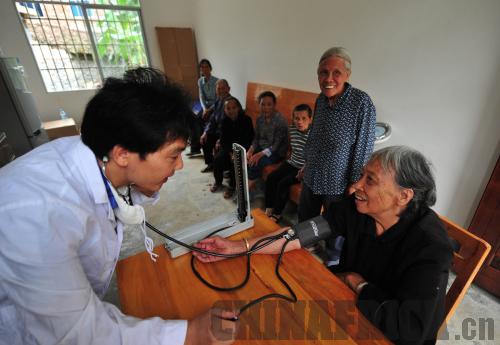|

China
Pension Insurance Coverage
China's urban and rural pension insurance systems covered 459 million people at the end of October 2012, according to the Ministry of Human Resources and Social Security. As many as 125 million elderly people receive funds every month, the ministry said in a statement posted on its website. Over the past few years, China has taken significant steps to improve the country's pension and social security system. The country kicked off a rural pension pilot program in 2009 and in 2011 announced a pilot program offering social pension insurance for urban residents to expand the coverage of the country's pension system.
Kenya
Youth Employment
Expanding income-generating opportunities for young people is critical to enhancing economic progress, social cohesion and political stability in Kenya, said a World Bank report "Kenya at Work, Energizing the Economy and Creating Jobs," which was released in Nairobi in December 2012. The report stresses that youth employment will accelerate economic growth and the attainment of Kenya's Vision 2030. "Kenya is in the midst of a critical transition evidenced by a dramatic shift from agriculture-based to wage and service sector employment, where the skills and expertise of the youth are in huge demand," said Johannes Zutt, World Bank Country Director for Kenya. He noted that Kenya has a dynamic youth population that should be tapped to propel economic, social and economic transformation in the east African nation.
Uganda
Fighting Counterfeit Imports
The Uganda National Bureau of Standards (UNBS) in December 2012 reinstated the requirement that all imports have a certificate demonstrating that they conform to standards in their country of origin before they enter the Ugandan market. The agency's Executive Director, Ben Manyindo said that all importers must stick to guidelines for the required standards of various goods. "The move is intended to protect Ugandans from substandard and counterfeit goods," he said, adding that for the first time in a very long time, Ugandans have a chance to be free from consuming or paying for substandard goods. All substandard goods will be impounded at entry points and destroyed at the owners' cost.
|